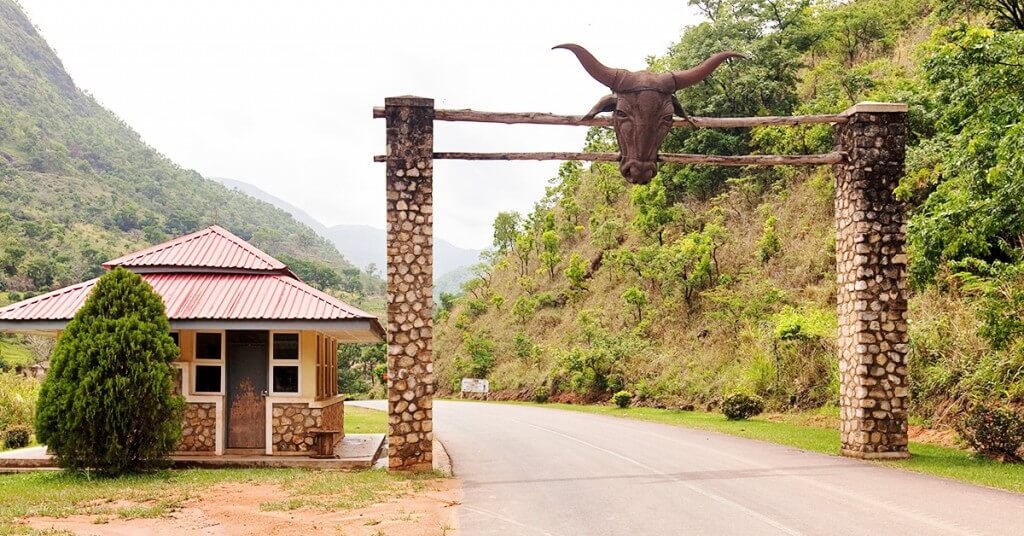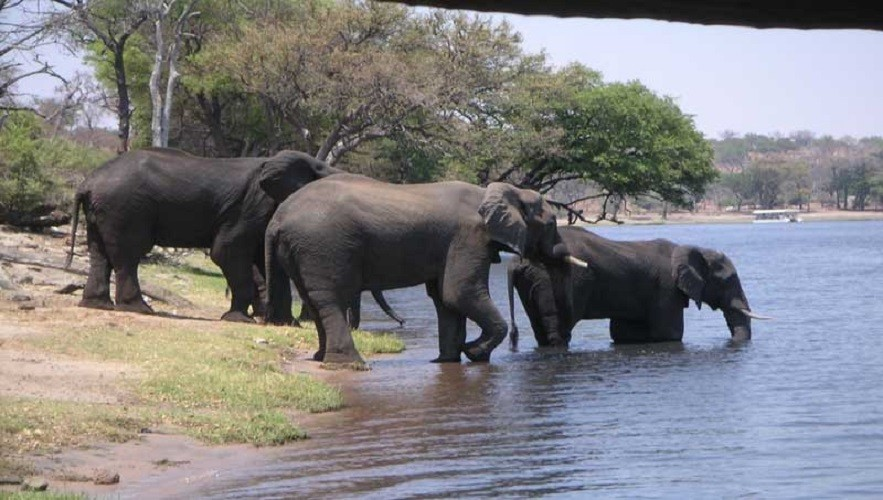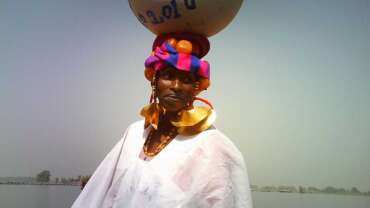Nigeria - Good people, Great nation!
Nigeria tours are becoming widely sought after for tourism due to the country’s natural beauty and soothing environ embraced by green lands, mountains, waterfalls, lakes, cultural activities, and traditional music and wildlife. Nigeria tourism packages include visits to national parks and rain forests and witnessing the cultural festivals. You can research online and be ready with your itinerary before you travel.
This can help you make the most of your vacation. Nigeria tourism guide will help you with the dos and don’ts of the country. Nigeria may be the most underestimated countries in the world; however, one must experience this emerging country for its rich culture, diverse geography and unique wildlife.
Nigeria is officially known as the Federal Republic of Nigeria. It consists of 36 states including the federal capital city of Abuja and 774 local Governments. It is situated in West Africa and is bordered on the north by Chad Republics and Niger, west by Republic of Benin and Republic of Cameroon and south by Gulf of Guinea (Atlantic Ocean). The country got its independence in the year 1960. Considering the large population and economy, this country is referred to as the ‘Giant of Africa’. Apart from being the No.1 populated country in Africa, it is also the 7th largest populated country in the world.
This country has much to its credit. It is a bubbling cauldron of music, art and culture, with its impact far reaching beyond the boundaries of the continent. Nigeria Holidays can be one of the best holiday options in the world. Nigeria Tours exemplify diverse culture, people and natural scenic beauty. You won’t regret your Trip to Nigeria.
History of Nigeria
Much has been said and written about Nigeria, her people and culture, economy and politics, that sheds light on the tremendous potential of this African Giant. However, little is known to the outside world about the many exciting tourist attractions available in Nigeria: Historic sites nestled amid rivers and rain forests, breathtaking mountain vistas, remote creek villages, miles of pristine beaches and exotic national wildlife reserves. There are also museums, festivals, music and dance, a rich cultural melange right down to everyday traditional markets. These are just some of the spectacular sights and sensual delights awaiting the traveler to Nigeria.
Nigeria has the largest population of any country in Africa (about 120 million), and the greatest diversity of cultures, ways of life, cities and terrain. With a total land area of 923,768 sq. km. (356,668 sq. mi.) Nigeria is the 14th largest country in Africa. Its coastline, on the Gulf of Guinea, stretches 774 km (480 mi.). Nigeria shares its international border of 4,470 km (2513 mi.) with four neighbors: Chad, Cameroon, Benin, and Niger. Until 1989 the capital was Lagos, with a population of about 2,500,000, but the government recently moved the capital to Abuja.
Empires
Kanem-Borno: While there is no direct evidence to link the people of the Jos Plateau with the Nok culture, or the Eze Nri of today with Igbo Ukwu, the history of Borno dates back to the 9th Century when Arabic writers in north Africa first noted the kingdom of Kanem east of Lake Chad. Bolstered by trade with the Nile region and Trans-Saharan routes, the empire prospered. In the next centuries, complex political and social systems were developed, particularly after the Bulala invasion in the 14th Century. The empire moved from Kanem to Borno, hence the name. The empire lasted for 1,000 years (until the 19th Century) despite challenges from the HausaFulani in the west and Jukun from the south.
Hausa-Fulani: To the west of Borno around 1,000 A.D., the Hausa were building similar states around Kano, Zaria, Daura, Katsina, and Gobir. However, unlike the Kanuri, no ruler among these states ever became powerful enough to impose his will over the others. Although the Hausa had common languages, culture, and Islamic religion, they had no common king. Kano, the most powerful of these states, controlled much of the Hausa land in the 16th and 17th Centuries, but conflicts with the surrounding states ended this dominance. Because of these conflicts, the Fulanis, led by Usman Dan Fodio in 1804, successfully challenged the Hausa States and set up the Hausa-Fulani Caliphate with headquarters in Sokoto, commanding a broad area from Katsina in the far north to Ilorin, across the River Niger.
Yoruba: In the west, the Yoruba developed complex, powerful city-states. The first of these important states was Ile-Ife, which according to Yoruba mythology was the center of the universe. Ife is the site of a unique art form first uncovered in thel93Os. Naturalistic terracotta, bronze heads and other artifacts dating as far back as the 10th Century show just how early the Yoruba developed an advanced civilization. Later, other Yoruba cities challenged Ife for supremacy, and Oyo became the most powerful West African kingdom in the 16th and 17th Centuries. The armies of the Oyo king (Alafin) dominated other Yoruba cities and even forced tribute from the ruler of Dahomey. Internal power struggles and the Fulani expansion to the south caused the collapse of Oyo in the early 19th Century.
Benin: Benin developed into a major kingdom during the same period that Oyo was becoming dominant to the west. Although the people of Benin are primarily Edo, not Yoruba, they share with Ife and Oyo many of the same origins, and there is much evidence of cultural and artistic interchange between the kingdoms. The King (Oba) oE Benin was considered semi-divine and controlled a complex bureaucracy, a large army, and a diversified economy. Benin’s power reached its apex in the 16th Century.
People of Nigeria
Ethnic groups
There are an estimated 250 ethnic groups in Nigeria. Each inhabits a territory that it considers to be its own by right of first occupancy and inheritance. Individuals who are not members of a dominant group but who have lived and worked for several decades in the territory of the group are still considered to be aliens. In most rural areas, such aliens may not acquire outright title to land, yet considerable numbers of people have migrated from one ethnic territory to another in search of farmland. There are three major ethnic groups in the country: the Hausa-Fulani, the Yoruba, and the Igbo.
The northern-dwelling Hausa, one of the most numerous groups in the country, have become integrated with the smaller Fulani group, whose members conquered Hausaland in the early 19th century; the great majority of both are Muslims. Town-dwelling Fulani intermarry freely with the Hausa and other groups, and they continue to control the administration of the Hausa towns. The cattle-herding rural Fulani, who generally do not intermarry, speak the Fulani language, Fula, rather than Hausa.
Another large and politically dominant group is the Yoruba of southwestern Nigeria. They consider the city of Ile-Ife their ancestral home and the deity Oduduwa their progenitor. Most Yoruba are farmers but live in urban areas away from their rural farmland. Each Yoruba subgroup is ruled by a paramount chief, or oba, who is usually supported by a council of chiefs. The ooni (oni) of Ile-Ife, who is the spiritual leader of the Yoruba, and the alaafin (alafin) of Oyo, who is their traditional political leader, are the most powerful rulers, and their influence is still acknowledged throughout the Yoruba areas.
The third major ethnic group, the Igbo of southeastern Nigeria, lives in small decentralized and democratic settlements. The largest political unit is the village, which is ruled by a council of elders (chosen by merit, not heredity) rather than by a chief. A smaller proportion live in large towns and are culturally much closer to the Edo of neighbouring Benin City (in Edo state) than to the Igbo east of the lower Niger valley.
Less numerous are the Ibibio, who live near the Igbo and share many of their cultural traits, and the Edo, who created the important precolonial kingdom of Benin. In the middle belt, where the greatest concentration of ethnic groups (more than 180) occurs, the Tiv and the Nupe are the largest groups. Both are settled cultivators, but, while Nupe society is hierarchical, that of the Tiv tends to be decentralized.
Languages
The languages of Nigeria are classified into three broad linguistic groups: Niger-Congo, Nilo-Saharan, and Afro-Asiatic. The huge Niger-Congo group is further subdivided into nine major branches, including the Kwa subgroup, spoken in the extreme southwestern corner of the country; the Ijoid branch, spoken in the Niger Delta region; the Atlantic subgroup, which most notably includes Fula; the extensive Benue-Congo subgroup, which includes Tiv, Jukun, Edo, Igbo, Igala, Idoma, Nupe, Gwari, Yoruba, and several languages of the Cross River basin such as Efik, Ibibio, Anang, and Ekoi; and the Adamawa-Ubangi languages, such as Awak, Waja, Waka, and Tula, spoken in northern Nigeria. The Nilo-Saharan group is represented in Nigeria principally by Kanuri, although speakers of Bagirmi and Zerma are also present in the country. Afro-Asiatic is a much larger linguistic group and comprises Hausa, Margi, and Bade, among others. Some peoples (such as the Fulani and the Tiv) are relatively recent immigrants, but, on the basis of modern linguistic research, it is thought that the great majority of Nigerian languages—specifically the Kwa subgroup—have been spoken in roughly the same locations for some 4,000 years.
Hausa was an official language of the northern states from 1951 to 1967. It is the most widely spoken language, although English is the official language of Nigeria. In addition to English, Hausa, Yoruba, Igbo, Fula, and English Creole are widely spoken. Many of the languages exist in written form.
Religion
At the beginning of the 20th century, most Nigerians were followers of traditional religions, but British colonial policies discouraged this to such an extent that by the time of independence in 1960 the great majority of the people were classified as Muslims or Christians. At the beginning of the 21st century, about half of the population was Muslim, slightly less than that was Christian, and only a small number claimed to follow traditional religions. However, many of those professing to be Muslims and Christians also openly performed certain rites or rituals of traditional religions that were no longer condemned as they had been during the colonial period. While a supreme god (called Olorun Olodumare in Yoruba, Chukwu in Igbo, Osalobua in Edo, and Abasi Ibom in Ibibio) is central to many of the traditional religions, the deity is worshipped through a number of intermediaries or lesser gods.
Religious freedom is guaranteed by the constitution, and Muslims and Christians live and work together, although there is continuing conflict between the two groups and between them and adherents of traditional religions. The greatest concentration of Muslims is in the northern states. There three-fourths of the people profess the religion of Islam, which also is the dominant faith in a few of the southern states. Christians make up more than three-fourths of the population in the eastern states.
The main established Christian groups are Roman Catholics, Methodists, Anglicans, and Baptists. A growing number of breakaway Christian churches, which embrace indigenous cultural traditions, are gaining popularity—a development perceived as a threat by the older established churches. The breakaway Christian churches often include drumming and dancing in their services, a practice since adopted by the established churches in an attempt to avoid losing members. Another issue has been how Islam and Christianity have chosen to incorporate the traditional practice of polygamy. Christianity has officially disallowed it, while Islam has allowed men to have up to four wives; however, breakaway Christian churches often have placed no limits on the practice.
Passion & Possibilities in Nigeria
PASSION
The Nigerian people are blessed with a positive spirit and unique way of life that reflects across their Entertainment, Sports, Art & Culture industries. ‘Nollywood’, the local film industry is the third largest in the world and the country maintains pioneering status with its music which have played major roles in influencing contemporary world music. A rich array of cuisines, fashion styles and festivals exist across the different tribes.
POSSIBILITIES
Nigeria boasts of the largest economy in Africa and is classified as a mixed economy emerging market, and has already reached lower middle-income status according to the World Bank, with its abundant supply of natural resources, well-developed financial, legal, communications, transportation and stock exchange (the Nigerian Stock Exchange). It is projected to have the highest average GDP growth in the world in 2010 – 2050.
Nigeria - Heartbeat of Africa

Places to visit in Nigeria
When you travel to Nigeria, you will love to visit popular tourist spots and enjoy the local culture. Amongst other Things to do in Nigeria, you can surely explore some of the best things to do in Nigeria to make your trip a fulfilling one. On a trip to Nigeria things to do can include exploring Nigeria attractions and visiting the places of interest.






